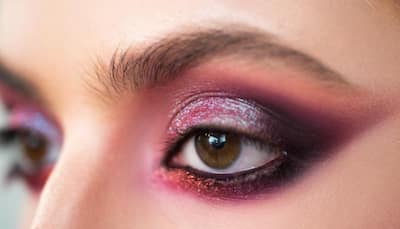Our eyes are among the most delicate and vital organs in the body. While many of us rely on eye makeup to enhance beauty and confidence, few are aware of the hidden risks that these products can pose to our vision and ocular health. Dr Swetha Kudtarkar, Consultant Ophthalmic Surgeon at Dr Agarwals Eye Hospital, sheds light on how common cosmetic practices may be silently damaging your eyes and what precautions you should take.
Women across civilizations have adorned their eyes with makeup—from and to modern and . But as eye cosmetics become more advanced, their effects on the eye’s sensitive structures also grow more concerning.
According to Dr Kudtarkar, “Eye makeup can worsen or trigger dry eye symptoms, as these cosmetics migrate into the tear film and reduce the oily layer, causing faster tear evaporation.” Shockingly, a large number of women use or cosmetics, increasing their exposure to serious eye conditions such as blepharitis and chronic infections.
Dr Swetha has shared 8 hidden dangers of eye makeup and how it impacts eye health:
Eye makeup products can harbor harmful pathogens like Staphylococcus aureus, Pseudomonas aeruginosa, and Candida albicans, especially after repeated use. Sharing makeup or using products beyond three months drastically increases contamination risks.
Dr Swetha says mascara wands and eyeliner tips can accidentally scratch the cornea, allowing bacteria direct access to deeper eye tissues, leading to infections and even corneal ulcers.
“Heavy metals like cadmium found in some eyeliners can cause corneal damage and mitochondrial dysfunction. These ingredients can disrupt the natural functions of the eye, leading to long-term harm,” says Dr Swetha.
Many cosmetics contain allergens like nickel, preservatives, resins, and fragrances. Dr Swetha says these can lead to conditions like dermatitis, particularly along the lash line, or full eyelid swelling and irritation.
Regular use of kajal or soot-based products can result in pigment deposits in the conjunctiva, changing the natural coloration of the eye and surrounding skin.
Dr Swetha says heavy mascara use can cause clumps to obstruct the lacrimal drainage system, leading to watery eyes, discomfort, and an increased risk of infection.
Makeup removers and eyeliners alter the meibum’s viscosity, affecting tear film stability and exacerbating dry eye symptoms.
Cosmetics can bind to the surface of contact lenses, irritating the eyes and leading to poor lens performance.
To enjoy makeup without compromising eye health, Dr Swetha recommends the following:
1. Apply outside the lash line and avoid roots of lashes to prevent gland blockage.
2. Use eye drops before makeup application, not after.
3. Never sleep with makeup on. It clogs oil glands and encourages bacterial growth.
4. Choose oil and paraben-free gel-based products. Avoid mineral oil, sodium lauryl sulfate, and diazolidinyl urea.
5. Clean brushes regularly and avoid sharing makeup products.
6. Use gentle lid scrubs with baby shampoo or approved lid wipes to cleanse the eyelids.
7. Always remove contact lenses before cleaning makeup.
8. Don’t apply makeup on irritated or infected eyes.
9. Check expiry dates and avoid counterfeit products.
10. Use ophthalmologist-tested or hypoallergenic products to reduce the risk of reactions.
While makeup is a tool for self-expression and confidence, your eye health should never be compromised for beauty. By adopting safer cosmetic practices and staying informed about product ingredients, you can continue to highlight your eyes without endangering them.
After all, your vision is just as valuable as the way you look—and both deserve equal care.
Stay informed on all the , real-time updates, and follow all the important headlines in and on Zee News.











